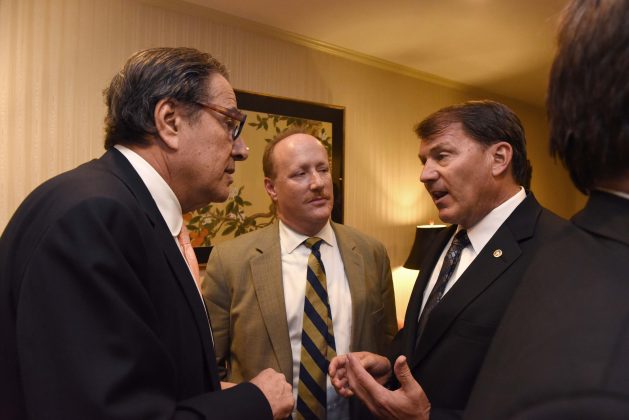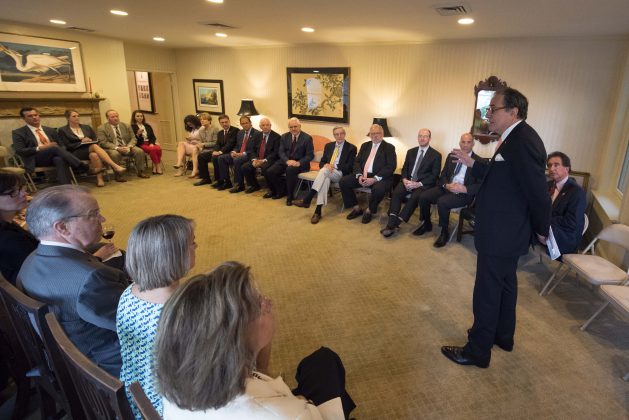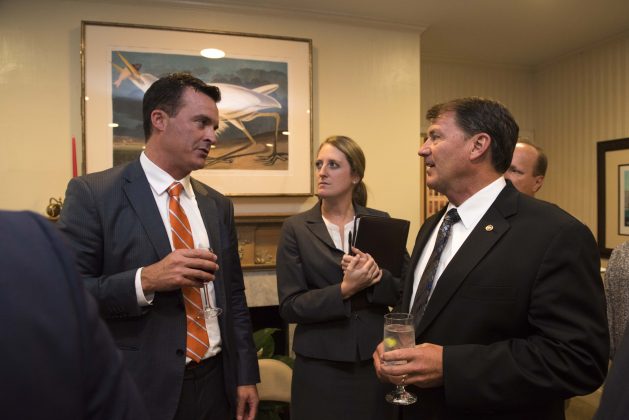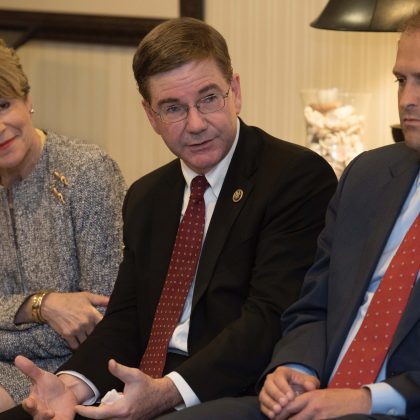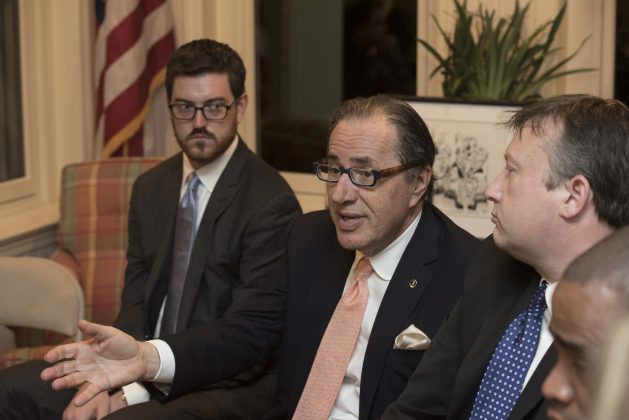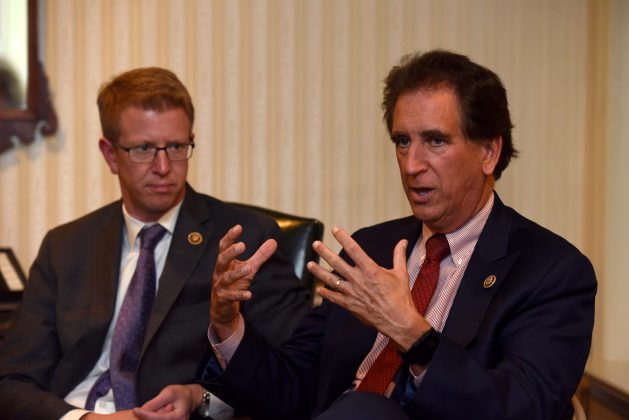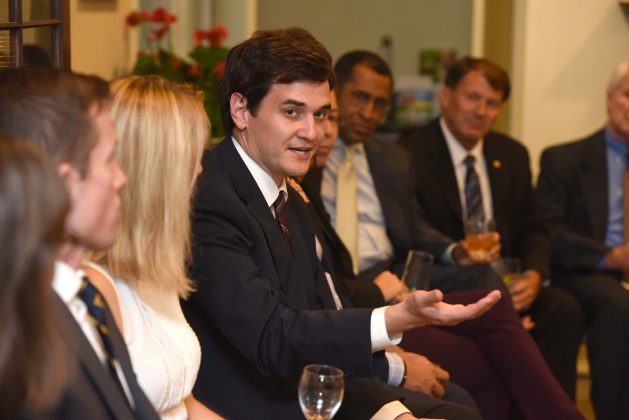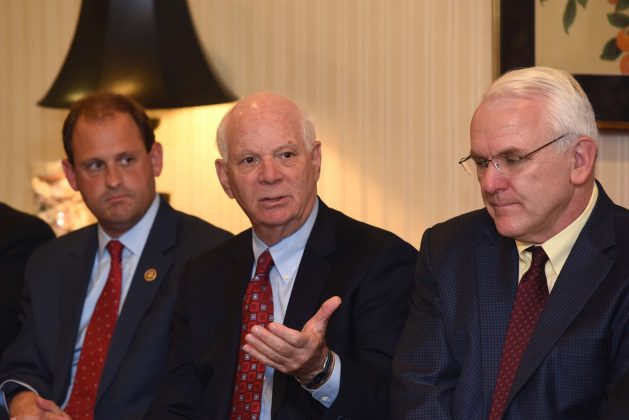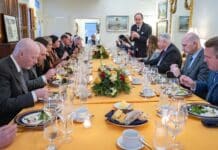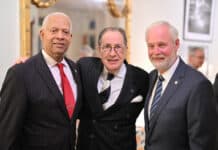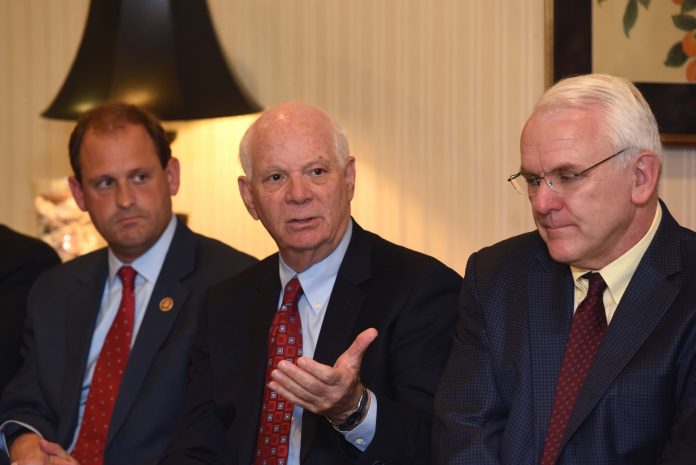
Chair, Senate Committee on Small Business
Mark Bloomfield and the American Council for Capital Formation hosted its 225th economic policy salon dinner on Tuesday night, Sept. 27 on the theme “Seven years later, the weakest economic recovery of the post-World War II era: What to do in the first hundred days of the next presidency?”
The off-the-record event featured a bipartisan discussion between members of Congress, representatives of industry and members of the media on the current slow growth rate of the U.S. economy. Attending the dinner were Sens. Ben Cardin (D-MD) and Mike Rounds (R-S.D.), Reps. Jim Renacci (R-Ohio), Marc Veasey (D-TX), Derek Kilmer (D-WA), Andy Barr (R-KY), and Keith Rothfus (R-PA).
Also attending were business representatives from various sectors of the economy, including energy, steel and financial services. Media attending the salon included reporters from the New York Times, The Hill, Real Clear Politics, and Tax Analysts.
Expansion of the U.S. economy since the end of the recession in 2009 has averaged roughly 2 percent, the slowest since 1949. In fact, the economic growth has not showing much improvement so far this year. GDP growth for the first two quarters of 2016 was just 0.8 and 1.4 percent, respectively.
Sluggish growth in investment and productivity have been partly blamed for this sub-par growth. And while employment is considered close to full employment levels – the unemployment rate in August was 4.9 percent – many attribute this to a discouraged workforce that has given up looking for work. These numbers are not encouraging, especially when the federal budget is also in need of attention because of growing debt driven by increasing mandatory spending putting much needed investment in the U.S. economy, such as infrastructure, at risk.
Participants in Tuesday’s dinner discussed ways to spur economic growth and job creation, including the drag on the economy caused by costly and often changing regulations that have not only increased the cost of doing business but also uncertainty for investors. Tax reform, which has been much in the headlines of late, was also raised as a way to encourage investment and energize the U.S. economy. Participants also addressed the need to put the fiscal house in order.
ACCF has hosted monthly economic policy dinners on Capitol Hill for more than three decades. The purpose of the salons is to foster an open forum where members of Congress, leading members of the media, and representatives of industry can freely discuss some of the most challenging policy issues of the day. The events often focus on capital formation, taxes, and other economic policies that promote domestic investment. National energy and environmental policy, with its influence on the U.S. economy, is also a regular topic of discussion.


